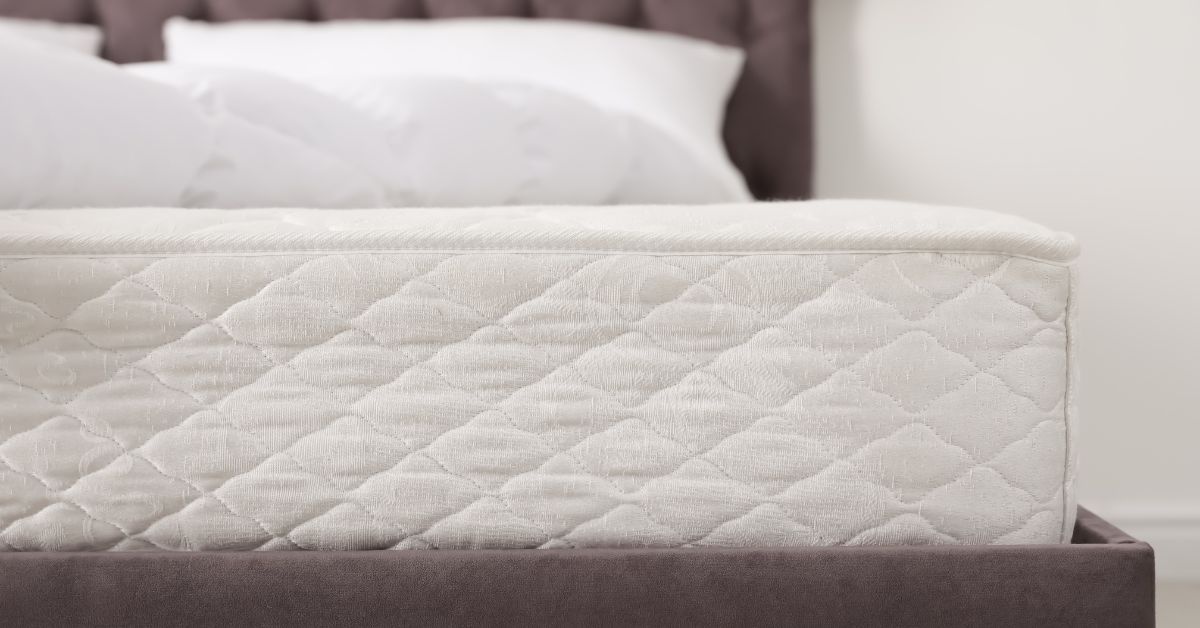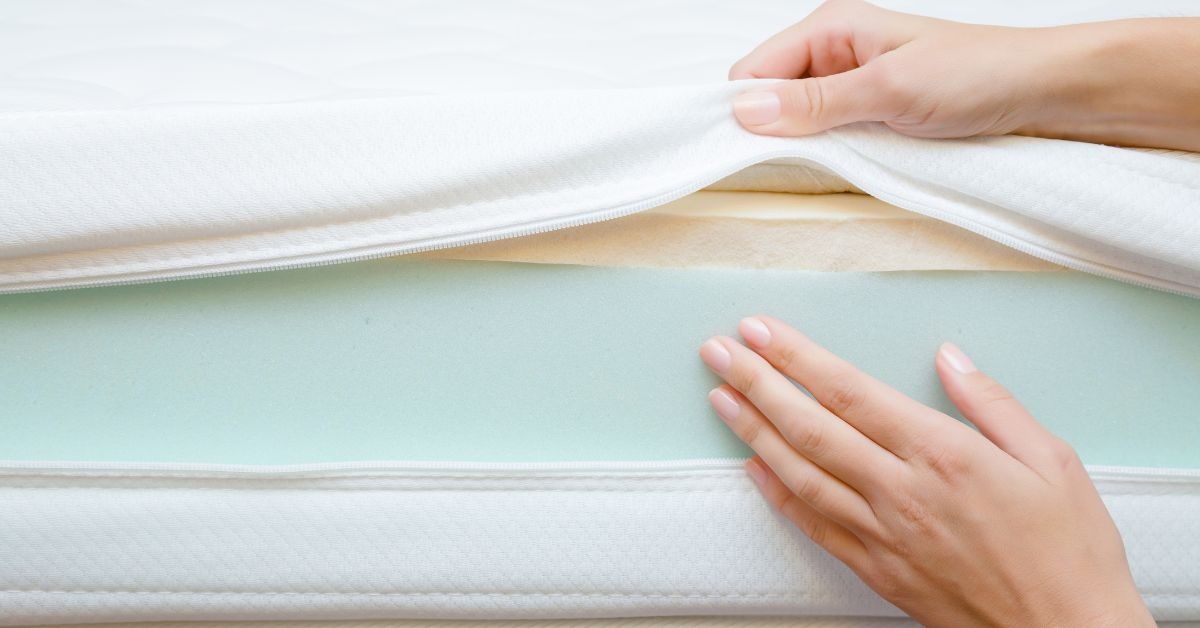
Is It Time To Replace Your Bed's Mattress?
We all enjoy feeling cozy in bed. Comfortable, restful sleep allows us to relax and find peace after each day’s activities. In fact, sleeping well at night is vital for your wellness, and your mattress is central to consistently getting good sleep. Over time, however, mattresses can lose their comfort, support, and even their hygiene, leading to many sleep issues. But how do you know when it’s time to replace your bed’s mattress?
This guide explores the signs it’s time for a change, the benefits of new mattresses, and how to choose and purchase the right one for you.
How Often Should You Replace Your Mattress?
Mattresses generally last seven to 10 years, but their lifespans can vary depending on their materials and how you use them.
Below are some factors that affect mattress longevity.
Material
Mattresses age at varying rates based on their materials.
For example, memory foam mattresses consist of resilient materials that can withstand wear better than the metal coils in traditional spring mattresses. Memory foam also evenly distributes body weight, minimizing sagging over time. These features give memory foam mattresses longer lifespans than spring mattresses.
Usage
The more you use your mattress, the faster it will break down. How you treat your mattress when you use it also has a big impact. Ask yourself these questions:
- Am I spending more hours in bed now than when I first bought my mattress?
- Do I flop onto the mattress instead of climbing in bed gently?
- Do my children jump on my mattress?
- How often do I eat and drink in bed?
- Do I consistently sit on the edge of the mattress?
Reflect on these questions to gauge how your mattress usage has impacted its structural integrity and longevity.
Care and Maintenance
Caring for and maintaining a mattress is essential for sustaining its lifespan and ensuring comfort. Rotating or flipping your mattress at least every three months can help avoid uneven wear and tear. Additionally, using and routinely washing covers can protect the mattress against allergens, spills, and stains. If you don’t do either of these things, then a new mattress will probably be in the cards sooner rather than later.
Signs That It’s Time for a New Mattress

If you’re considering getting rid of your mattress, you’ve probably noticed changes that indicate it’s no longer in its prime. Below are some signs that confirm your suspicions that your mattress needs replacing.
Discomfort While Dozing
Does your mattress have springs that cause you to wake up with shoulder and hip pain when sleeping on your side? Is your mattress too soft and causing your neck to hurt when you sleep on your stomach? Does it take you or a partner a long time to find a good spot or position for sleeping?
If you struggle to sleep comfortably and frequently wake up with persistent aches and pains, your mattress likely no longer provides the necessary support for your body.
Increased Stress and Fatigue
The poor sleep you get at night can directly contribute to and exacerbate any stress and fatigue you experience during the day. If you’ve noticed a decline in your mood and energy levels, a mattress that keeps you up at night could be the culprit!
Visible Sagging or Lumps
Give your mattress a check for sagging, lumps, or indents, especially in the middle or where you sleep. Not only can these imperfections disrupt your sleep, but they’re also telltale signs your mattress is overdue for replacement.
Allergy Flare-Ups and Hygiene Concerns
Old mattresses can accumulate dust mites, allergens, and other irritants over time, which could lead to increased allergy symptoms. If your allergies worsen during the night or in the morning when you wake, your mattress could be contributing to these health issues.
The Importance of a Good Mattress
A good mattress is beneficial for not only your comfort but also your health. Below are the aspects of your life that a new mattress can improve.
Daily Productivity
A new mattress supports restful, uninterrupted sleep. As a result, you’ll experience less daytime fatigue and more productivity, concentration, and focus.
Respiratory Health
A clean mattress free of dust and allergens helps you breathe better. Plus, many new mattresses feature hypoallergenic materials and moisture-wicking properties, which also contribute to allergen control.
Posture and Spine Health
A new mattress is also easier on your neck, back, and muscles. Comfortable mattresses in good condition keep your spine aligned during sleep, which helps prevent acute back and neck pain and can alleviate chronic pain.
Choosing the Right Mattress
If you want to experience the benefits of a new mattress, your next step is learning how to find the right one for you.
Mattress Types
Understanding different kinds of mattresses can help you make an informed purchase. Consider which of these mattress types will be most comfortable for you:
- Innerspring: Innerspring mattresses are best for you if you prefer a more traditional feel. They provide support and comfort with their quilted, often plush, and smooth surfaces.
- Memory foam: These mattresses use body heat and pressure to conform to your shape. This feature allows them to offer great support and pressure relief.
- Hybrid: Hybrid mattresses contain different materials. For instance, they can be a mixture of coils and foam. Combining different materials enables mattresses to offer the best of both worlds while providing balanced comfort and support.
Pro Tip
Before investing in a new mattress, test potential options. If the store where you shop allows it, lie down on display models. Take your time and mimic your usual sleeping position to get a literal feel of how comfortable your new mattress will be!
Mattress Firmness and Sleep Style
Your preferred sleeping position will influence the firmness level you should look for in your next mattress.
- Side sleepers: If you’re a side sleeper, you might benefit most from a softer mattress that’ll cushion your shoulders and hips.
- Back sleepers: Do you sleep better on your back? Back sleepers typically require a mattress of medium firmness to maintain spinal alignment.
- Stomach sleepers: If sleeping on your stomach helps you rest more soundly, you most likely need a firmer mattress to prevent it from sagging and lumping.
Money-Saving Tips for Mattress Shopping

When shopping for a new mattress, every dollar counts. Here are some savings strategies to help you while searching for a budget-friendly, comfortable option:
Consider Older Models
There’s no shame in getting an old model for your new mattress. Purchasing last year’s model can result in significant savings without sacrificing comfort or quality.
Shop Sales, Clearance Events, and Flexible Credit Options
Look for seasonal sales and clearance events to find great deals on quality mattresses.
It also helps to shop at a store that prioritizes honest value and offers financing options that suit individuals and families of all incomes. Grand Furniture’s no-credit mattress financing makes style and comfort accessible to all.
Get a Brand-New, Grand-New Mattress
Is it time to replace your bed’s mattress? If all signs point to yes, don’t let financial worries keep you from a good night’s sleep. Grand Furniture offers affordable monthly payment plans that suit your budget, whether you have good, bad, or no credit. Take advantage of our unique financing programs and explore our vast selection of top-quality mattresses to get the comfort you deserve without any financial hassle.


